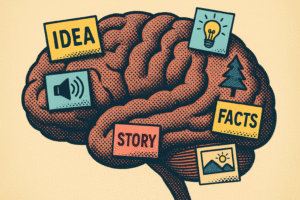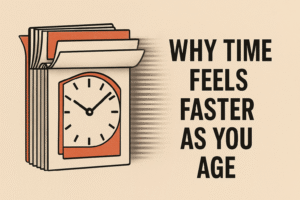Fun Fact: Did you know that putting your thoughts on paper can tap into more parts of your brain than typing ever could?
Let me be frank: Why Some People Think Better on Paper isn’t just a quirky preference—it’s a brain hack. In this newspaper-style, slightly provocative article, I’m telling you straight: there’s a reason why some of us feel more genius with a pen in hand, and it’s not fluff. This is the power of external thinking, and it’s time we stop mocking notepads as old-fashioned and start appreciating them as brain boosters.
Your Brain Loves Handwriting
Backed by neuroscience, writing by hand isn’t just charming—it’s effective. Studies show that handwriting activates a wider brain network, including areas linked to movement, vision, sensation, and memory—far more than typing does. When your hand writes, your motor system works in tandem with your visual perception, embedding what’s on the page deeper into your brain—something a keyboard simply can’t match.
External Thinking = Brain Offloading
Let’s be blunt: thinking isn’t always pretty. Your mind juggles ideas, priorities, goals, and mental to-dos until it’s a traffic jam of thoughts. Writing things down offers external relief—it’s like unloading your brain’s backpack so it can breathe and truly think.
Paper Makes You Focus—Screens Don’t
Ever started typing and suddenly bought socks? Digital tools are distractions, like wearing fancy clothes. On a page, however, you’re unplugged and engaging. The act of writing forces attention and slows your thoughts down so they can actually take shape.
Embodied Cognition—Body and Mind Unite
Thinking isn’t just in your head—it’s in your fingers, your scribbles, your sticky notes. According to embodied cognition, the body plays a central role in thought. Breaking down ideas on paper—physically sorting, grouping, writing—can reveal patterns your screen can’t show. In one case, analysts sorted printed commentary across a table to better understand data—because paper offered a cognitive clarity a digital screen couldn’t.

The Extended Mind—We Think Better With Tools
Philosopher Andy Clark argues that our mind doesn’t end at the skull; tools and environments extend our cognition. Think of notebooks as memory wallets—our brain relies on them. It’s not denial—it’s a sophisticated thinking strategy.
Journaling Builds Clarity and Creativity
There’s a reason world thinkers keep journals—it clears the clutter. Writing organizes chaotic thoughts, boosts memory, clarifies problems, and even unlocks creative solutions. It’s not woo-woo; it’s science.
Why Some Folks Are Analog Thinkers
Research suggests that those who prefer pen and paper in a screen-happy world display traits like thoughtful creativity, privacy, and intentionality. Without screens forcing linear formats, they embrace scribbles, arrows, mind maps—and sometimes poems in margins—that spark unexpected insights.
Real-Life Anecdote
Take Ananya, a college friend. Her best ideas never came during lectures—they emerged later, from messy pages of ink. She’d pace with a pen, tear off a scrap, and connect ideas in the margins. She always denied it was magic—but in fact, that was her thinking system: tactile, external, expansive.
Conclusion
So, here’s the provocative truth: thinking on paper isn’t quaint—it’s potent. It fuels clarity, taps into deeper brain networks, and gives your thoughts room to breathe. Next time someone scoffs at your notebooks, tell them: your mind might just be smarter than theirs. Want to level up your thinking? Pick up a pen, clear your mind, and let your ideas spill.
Author’s Note
Yes, I’ve been accused of loving paper because I’m nostalgic. But the truth is, I write better, think clearly, and even feel calmer when ideas are penned. Try it—your brain may thank you.
G.C., Ecosociosphere contributor.
References & Further Reading
- Scientific American — Why Writing by Hand Is Better for Memory and Learning
- Psychology Today — Why Writing by Hand Can Boost Brain Connectivity
- Medium — Why Write? The Cognitive Benefits of Writing
- Elevate App — Journaling and Cognitive Function
- Big Think — Journaling Boosts Concentration and Clarity
- New Yorker — The Mind-Expanding Ideas of Andy Clark
- Wired — Reading on Screen vs. Paper
- Christopher Roosen Blog — Working with Paper Expands Your Mind
- Eden Senior Health Care — How Journaling Each Day Can Improve Cognition
- Embodied Cognition – an overview | ScienceDirect Topics




